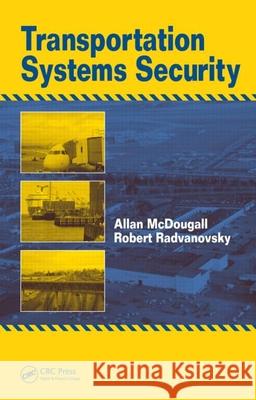Transportation Systems Security » książka
Transportation Systems Security
ISBN-13: 9781420063783 / Angielski / Twarda / 2008 / 280 str.
Highlighting the importance of transportation to a country s infrastructure and survival, Transportation Systems Security presents the strategic and practical considerations involved in the implementation of physical, procedural, and managerial safeguards required to keep all modes of transportation up and running during an actual or potential disaster.
Structured in an easy cognitive fashion, the book begins with a basic introduction providing terms and definitions. It describes both physical and information system layouts and defines who controls what parts of the process, how far control is extended, and who oversees controls within the system.
Building on this foundation, subsequent chapters discuss problems such as the need for a more defined domain-based approach when threats, assets, vulnerabilities, and safeguards are not under local control. The book describes and refines the concepts of criticality, impact, and consequence as they relate to the assignation of value for personnel, assets, facilities, information and activities in terms of how they might support performance.
By comparing continuity of operations planning (COOP) to business continuity planning (BCP), the book presents security measures as a value-added benefit rather than a hindrance to business and introduces the notion of certification, accreditation, and licensure. It demonstrates safeguards that layer outward from the entity and across the system with the ability to prevent, detect, and notify, as well as respond to and recover from a crisis.
Emphasizing the sharing of information and methods, the book encourages security to become an integrated component within the system, not just imposed on top of it. It takes a holistic approach to the transportation infrastructure, introducing the concept of fragility and the measurable factors involved, and including a 20 page questionnaire to help managers determine their company s fragility in terms of transportation security."











